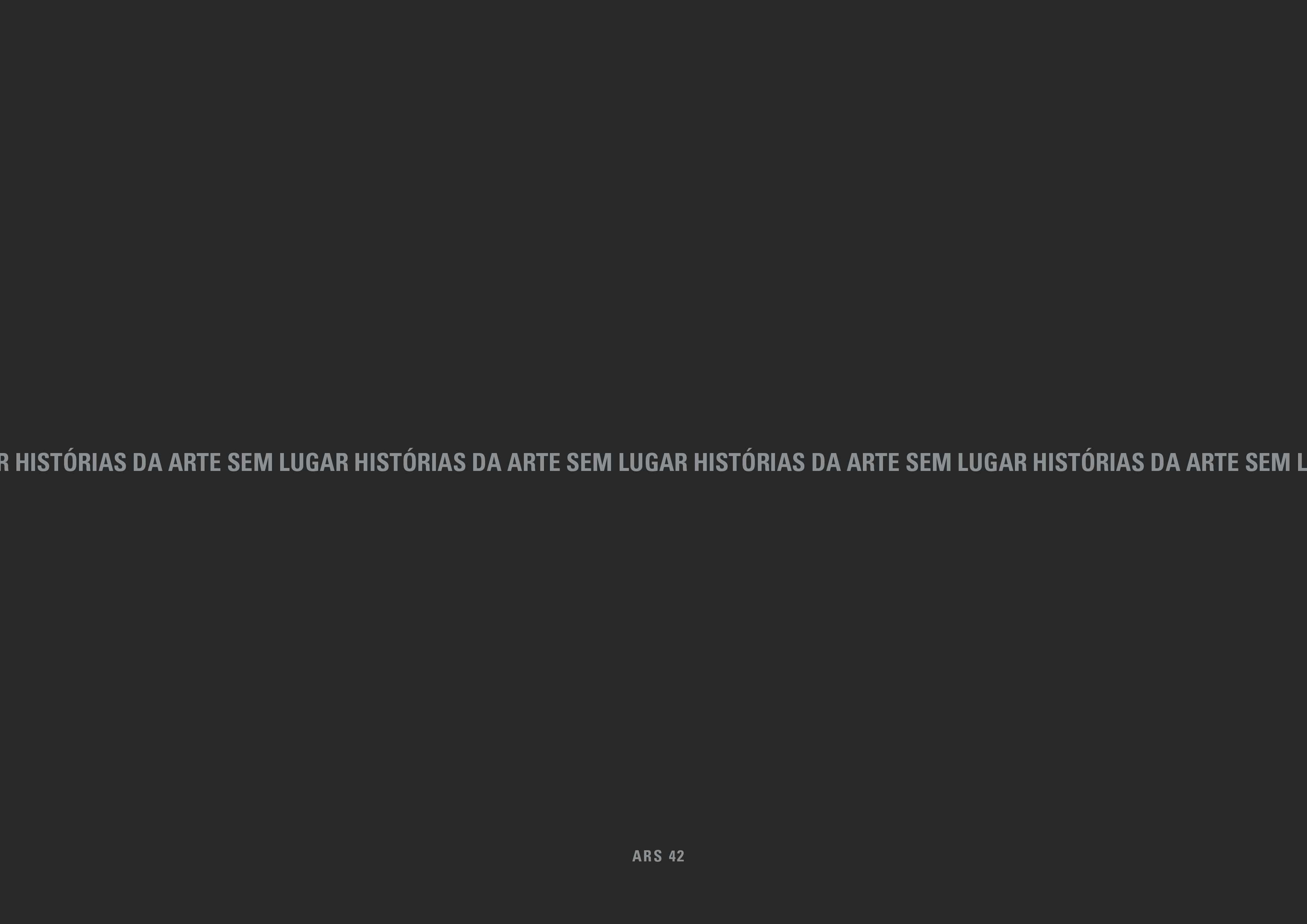The Place of Art History and the Crisis of the Conference
DOI:
https://doi.org/10.11606/issn.2178-0447.ars.2021.186662Keywords:
Globalism, Covid-19, History of the Conference, Art and Art HistoryAbstract
This essay considers the ways in which Covid-19 has accelerated the crisis of the conference – for our purposes generally understood as a scientific-academic meeting. The pandemic has added a new dimension – the epidemiological – to economic, social and ecological criticisms that were already being formulated with regard to this type of event. On the other hand, conferences had, since the 19th century, a central role in the creation of a global network of academic development and cooperation. With the recent upsurge of denialist and xenophobic positions worldwide, it is imperative to preserve and even expand supranational interchanges. This essay seeks to draft possible alternatives to the traditional format of conferences, paying special attention to the fields of art and art history.
Downloads
References
ABBOTT, Alison. Low-carbon, Virtual Science Conference Tries to Recreate Social Buzz. Nature, vol. 577, 2 jan 2020, p. 13. Disponível em: https://media. nature.com/original/magazine-assets/d41586-019-03899-1/d41586-019- 03899-1.pdf. Acesso em: 26 abr. 2021.
DUFRENE, Thierry. A Short History of CIHA, 2007, pp. 1-5. Disponível em: http://www.ciha.org/sites/default/files/files/Short_History_of_CIHA(1).pdf. Acesso em: 10 abr. 2021.
KALIA, Vivek et al. Adapting Scientific Conferences to the Realities Imposed by Covid-19. Radiology: Imagining Cancer, jun. 2020. Disponível em: https://pubs. rsna.org/doi/10.1148/rycan.2020204020. Acesso em: 26 abr. 2021.
KLÖWER, Milan. An Analysis of Ways to Decarbonize Conference Travel After Covid-19. Nature, vol. 583, jul. 2020. Disponível em: https://www.nature. com/articles/d41586-020-02057-2. Acesso em: 24 abr. 2021.
LE QUÉRÉ, Corinne et al. Towards a Culture of Low-carbon Research for the 21st Century. Tydall Centre for Climate Change Research, working paper 61, mar. 2015. Disponível em: https://tyndall.ac.uk/sites/default/files/ publications/twp161.pdf. Acesso em: 26 abr. 2021.
REMMEL, Ariana. Scientists Want Virtual Meetings to Stay After the COVID Pandemic. Nature, vol. 591, 2 mar. 2021, pp. 185-186. Disponível em: https:// www.nature.com/articles/d41586-021-00513-1. Acesso em: 24 abr. 2021.
SARABIPOUR, Sarvenaz. Research Culture: Virtual Conferences Raise Standards for Acessibility and Interactions. eLife, nov. 2020. Disponível em: https://elifesciences.org/articles/62668. Acesso em: 26 abr. 2021.
SARABIPOUR, Sarvenaz et al. Changing Scientific Meetings for the Better. Nature Human Behaviour, vol. 5, mar. 2021, pp. 296-300. Disponível em: https://www.nature.com/articles/s41562-021-01067-y.epdf?sharing_token Oc0BZrxE3eW3XGmPS6FkmtRgN0jAjWel9jnR3ZoTv0Pt7ybQ1UFuM-38giy MkdwcW7Clhzrv85kmzuTdEh31AGW2ayLIZ-yoDSuyMcNsj1RqaqxCyCGmh kkQV2h8XSqHbQF8ARzjrc4rKWeD_oL1SgvGk4KzIZmMeNwFv9XGzjc%3D. Acesso em: 28 abr. 2021.
STEYN, Renier. Academic Tourism from and Equity Theory Perspective. African Journal of Hospitality, Tourism and Leisure, vol. 4, n. 2, 2015. Disponível em: http://www.ajhtl.com/uploads/7/1/6/3/7163688/article23vol4(2)july-nov2015. pdf. Acesso em: 12 mai. 2021.
VIGLIONE, Giuliana. A Year Without Conferences? How the Coronavirus Pandemic Could Change Research. Nature, vol. 579, mar. 2020, pp. 327-330.Disponível em: https://www.nature.com/articles/d41586-020-00786-y. Acesso em: 24 abr. 2021.
WYNES, Seth et al. Academic Air Travel Has a Limited Influence on Professional Success. Journal of Cleaner Production, vol. 226, jul. 2019, pp. 959-967.
Downloads
Published
Issue
Section
License
Copyright (c) 2021 Maria Berbara

This work is licensed under a Creative Commons Attribution-NonCommercial 4.0 International License.
The responsibility for obtaining written permission to use in the articles materials protected by copyright law lies entirely with the author(s). Ars is not responsible for copyright breaches made by its collaborators.
The authors have the copyrights and grant the journal the right of the first publication, with the article licensed under the Creative Commons BY-CC License.
Licensees have the right to copy, distribute, display, and carry out the work and make derivative works from it, including with commercial purposes, granted that they give the due credit to the author or licensor, as specified by them.
Licensees compromise to inform the appropriate credit, provide a link to the license, and indicate if changes were made.
Respected the terms of the license, the licensors/authors are not allowed to revoke the conditions above mentioned.
After the publication of the articles, the authors keep the copyrights and the rights to republish the text exclusively in unpublished books and collections.


